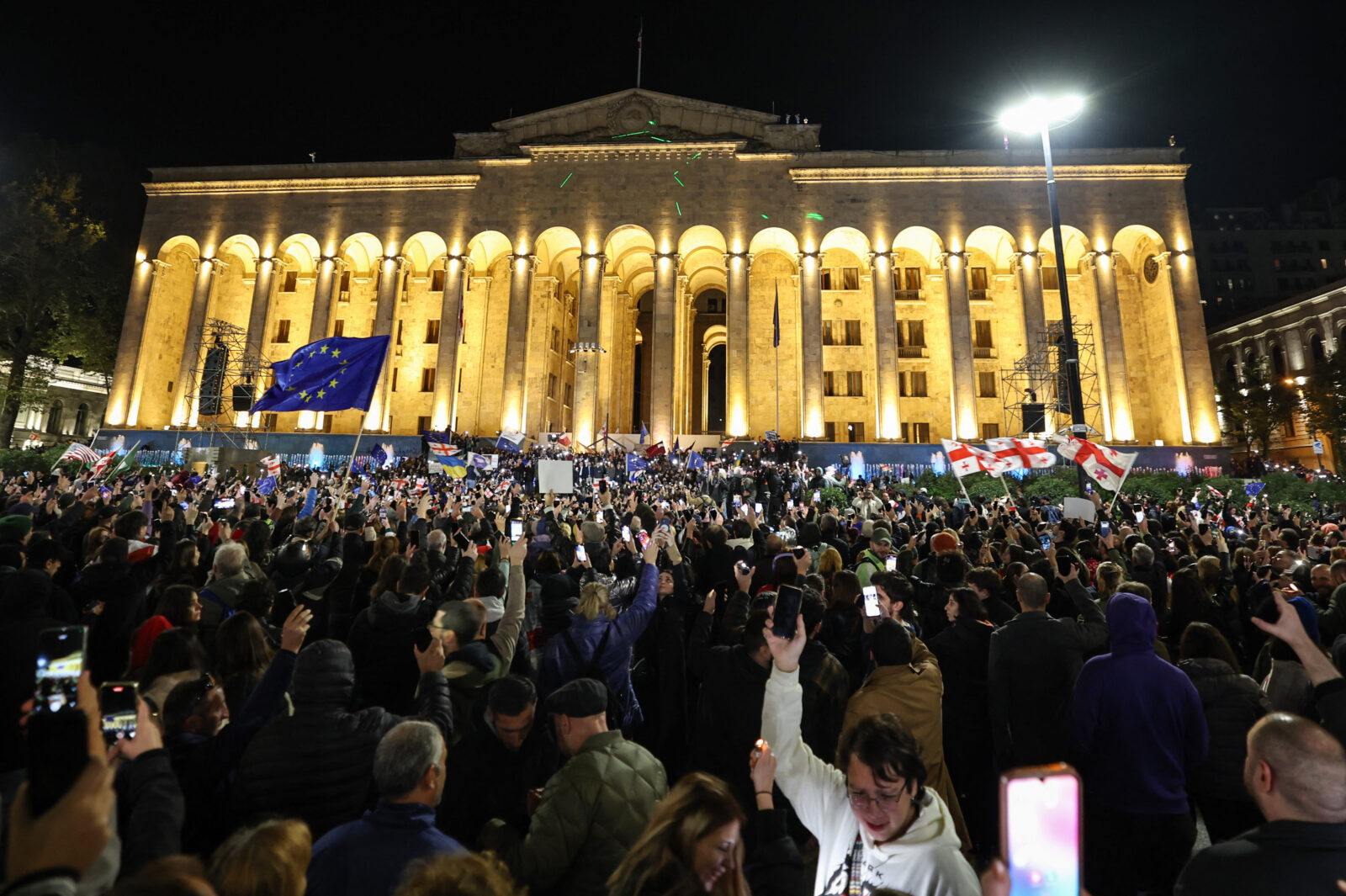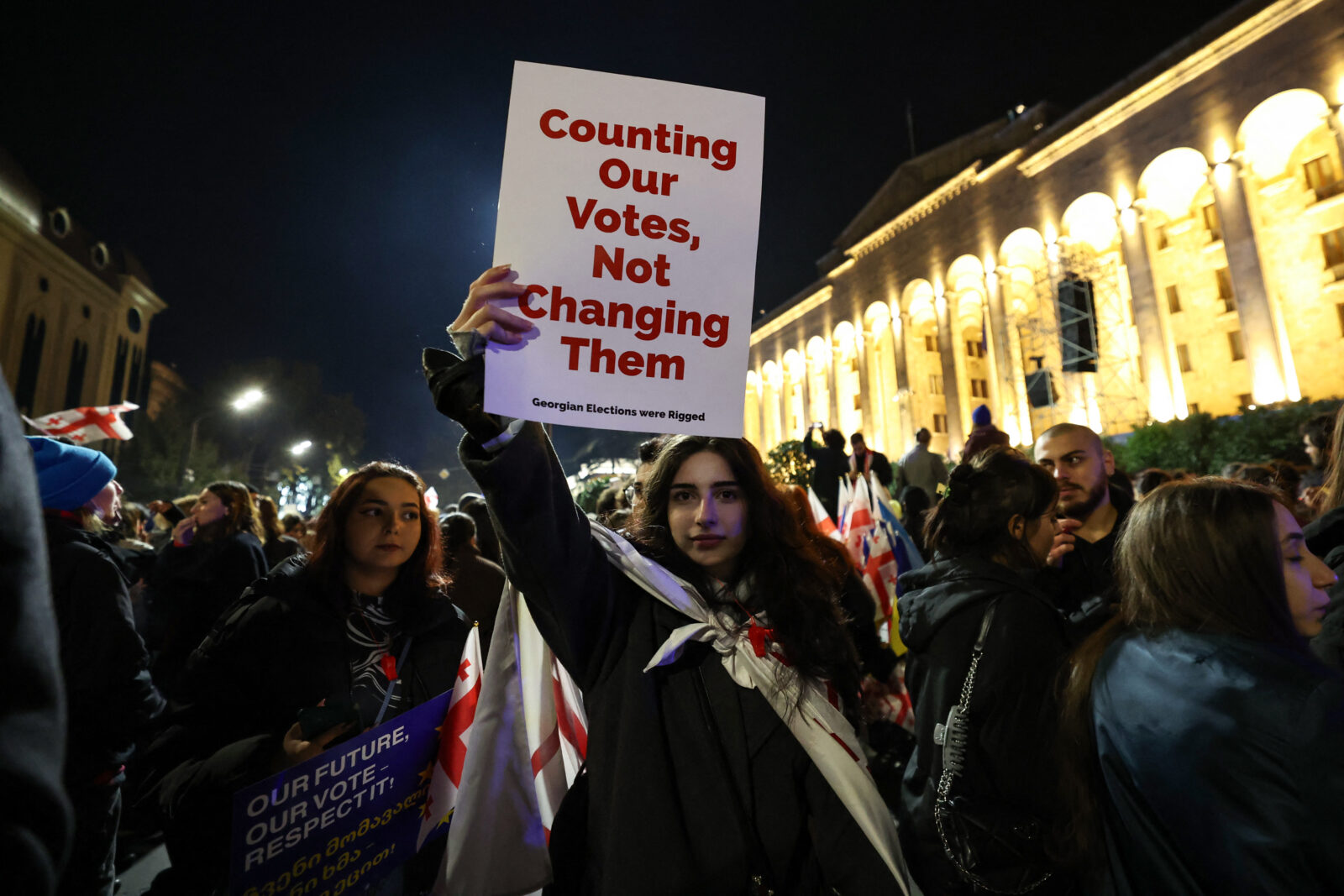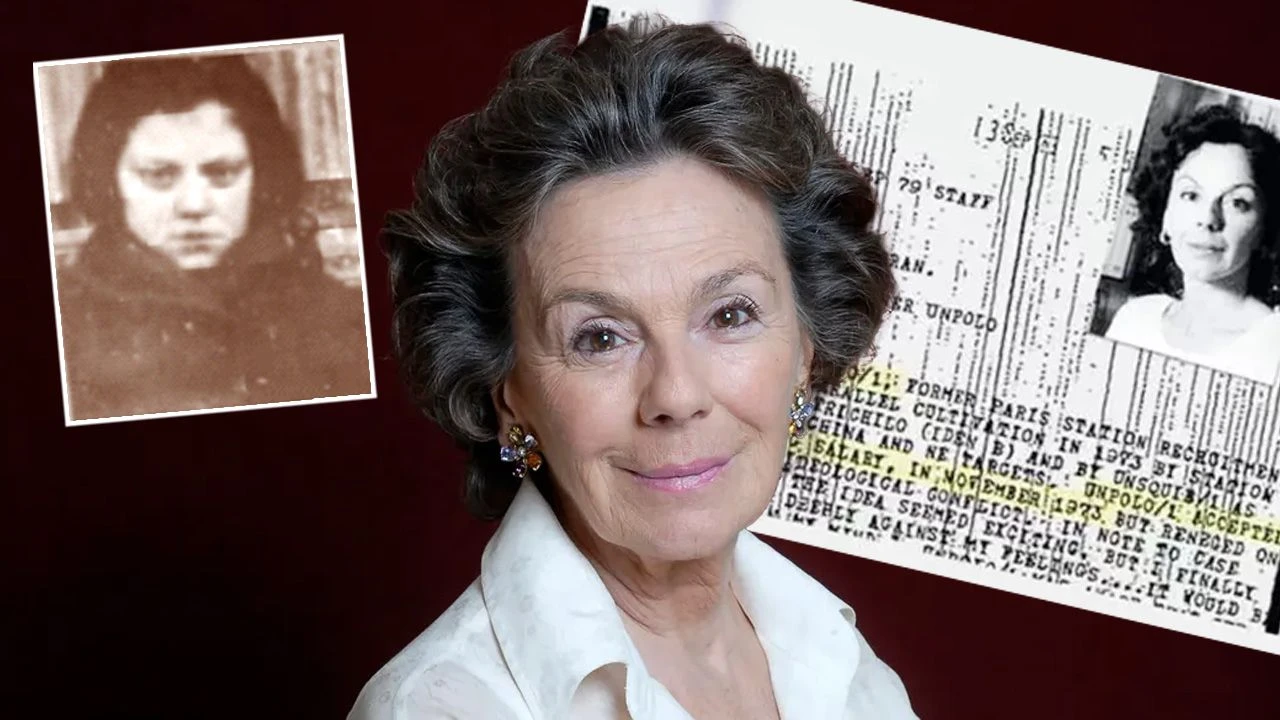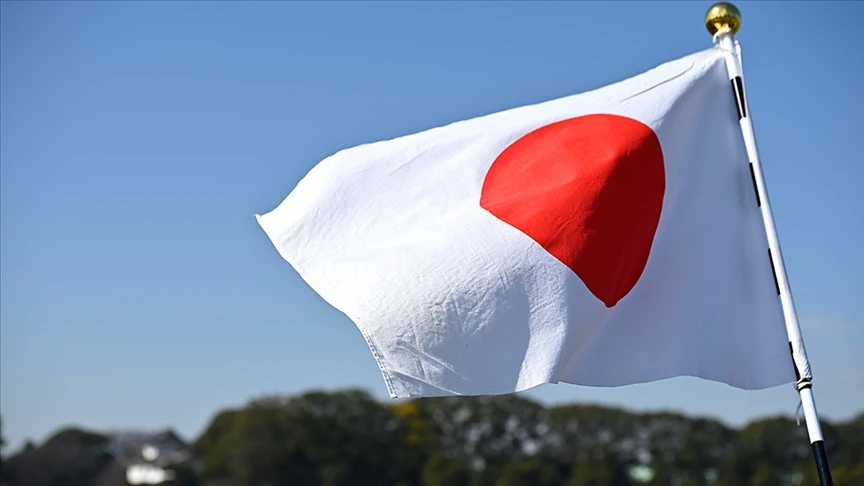Mass protests erupt in Georgia over ‘stolen’ elections
 Georgian opposition supporters rally to protest results of the parliamentary elections that showed a win for the ruling Georgian Dream party, outside the parliament building in central Tbilisi, Georgia, October 28, 2024. (AFP Photo)
Georgian opposition supporters rally to protest results of the parliamentary elections that showed a win for the ruling Georgian Dream party, outside the parliament building in central Tbilisi, Georgia, October 28, 2024. (AFP Photo)
Tens of thousands of Georgians took to the streets on Monday to protest against the ruling party’s victory in parliamentary elections, which the pro-Western opposition denounced as “stolen.”
Georgia’s President Salome Zurabishvili alleged to news agency Agence France-Presse (AFP) that the vote was rigged using “sophisticated” methods linked to Russia.
Political uncertainty following vote
The Caucasus nation has experienced political turmoil since Saturday’s elections, with mass anti-government protests earlier this year exacerbating tensions.
Key international players, including Brussels, Washington, France and Germany, condemned the reported “irregularities” in the electoral process.
According to nearly complete results from the electoral commission, the ruling Georgian Dream party secured 53.92% of the vote, while a coalition of four pro-Western opposition alliances garnered 37.78%.
The opposition has accused Georgian Dream of steering the country away from its EU aspirations and back into Russia’s orbit.

Demonstrators rally for change
Waving Georgian and EU flags, tens of thousands of demonstrators gathered outside the main parliament building in central Tbilisi.
They sang Georgia’s national anthem, “Freedom,” as President Zurabishvili addressed the rally. “Your votes were stolen, but we will not let anyone steal our future,” she declared, vowing to support the crowd in their pursuit of a European future.
Opposition leader Giorgi Vashadze stated that opposition parties will not enter the new “illegitimate” parliament and demanded “fresh legislative elections” overseen by an “international election administration.”
Alleged Russian interference in elections
In an interview with AFP, Zurabishvili claimed the use of “quite sophisticated” fraudulent schemes in the elections. She had previously labeled the election results “illegitimate,” alleging a “Russian special operation” to interfere with the vote – a claim swiftly denied by the Kremlin, whose spokesman Dmitry Peskov stated, “there was no intervention.”
“It’s very difficult to accuse a government, and that’s not my role, but the methodology is Russian,” Zurabishvili remarked, expressing concern about dealing with Russia.
A group of Georgia’s leading election monitors held a news conference on Monday, stating they uncovered evidence of complex, large-scale fraud that altered the election outcome in favor of the ruling party.
They called for a swift investigation and the annulment of at least 15% of all votes cast, citing documented evidence of election rigging at multiple polling stations.

International reaction and concerns
Despite EU concerns over the vote, Hungarian Prime Minister Viktor Orban, a close associate of the Kremlin, arrived in Tbilisi on Monday for a two-day visit. Orban tweeted support for the Georgian government, asserting that “Georgia is a conservative, Christian and pro-Europe state.”
Georgian Prime Minister Irakli Kobakhidze insisted that EU membership remains a “main priority” for his party, despite the criticism.
The election results granted Georgian Dream 89 seats in the 150-member parliament, allowing them to govern but falling short of the supermajority needed to impose a constitutional ban on opposition parties.
U.S. Secretary of State Antony Blinken condemned the “misuse of public resources, vote buying, and voter intimidation,” stating these factors contributed to an “uneven playing field.”
An EU parliamentary mission reported evidence of “democratic backsliding,” including instances of “ballot box stuffing” and the “physical assault” of observers.
‘Orban’s visit doesn’t represent EU’s stance’
EU foreign policy chief Josep Borrell noted that Orban’s visit does not represent the bloc’s stance on foreign affairs.
Polish Foreign Minister Radoslaw Sikorski echoed calls for European support, stating, “The President of Georgia has announced that the parliamentary elections were falsified. Europe must now stand with the Georgian people.”
Georgia experienced significant unrest in May due to protests against a controversial law on “foreign influence,” which critics argued mirrored Russian legislation aimed at suppressing dissent.
Following the protests, the U.S. imposed sanctions on Georgian officials, and Brussels halted Tbilisi’s EU accession process.



